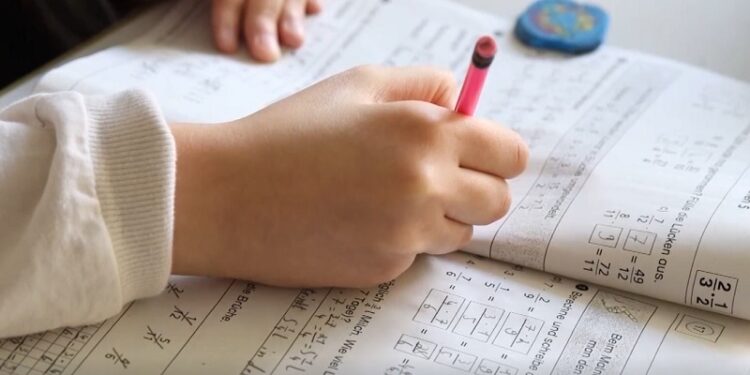
(NewsNation) — Corporal punishment in schools has become a focus in a race for the Oklahoma state legislature.
An attendee at a recent forum recorded her exchange with Republican candidate Jonathon Wilk, who said he believes in corporal punishment “for any kid that’s acting out” — including children with physical and mental disabilities.
“If they have the ability to act like a human being, then they should be disciplined if they are not,” Wilk said in the recording.
Research shows hitting children can lead to mental health and emotional problems and injuries and negatively impact their performance at school, according to the National Education Association (NEA).
Wilk isn’t the only Oklahoma Republican who supports corporal punishment.
State Rep. Jim Olsen says it’s been used as a “successful” disciplinary tool for centuries and should remain legal, even for students with disabilities.
“When applied properly, it works well,” Olsen said. “Now, typically, Oklahoma schools that do use it use it rarely. And just that possibility is enough to improve the general mood of behavior, if you will.”
Others, like Oklahoma Institute for Child Advocacy CEO Joe Dorman, say students should receive “proper discipline, but not physical beatings.”
OIsen and Dorman joined “Morning in America” Thursday to argue their perspectives.
“Only a few states still allow it for special needs students, and Oklahoma is one of those,” he said. “And we’ve had multiple reports to our office of parents upset that their children have had corporal punishment applied too harshly or not appropriately.”
The practice is explicitly legal in 17 states.
There were 351 reported instances of Oklahoma students with disabilities who were hit in Oklahoma schools during the 2020-21 school year, according to the Department of Education.
Olsen has seven children, whom he homeschooled, and 15 grandchildren, he said, adding that he wouldn’t be upset to learn someone he trusted hit his child or grandchild as a form of discipline.
“Our position would be that if our child is openly clearly defiant and you feel that that’s proper, they would be in the care of someone we trust, and we would totally be fine with them doing that,” he said.
The adults entrusted with caring for children, however, are also some of those most likely to inflict abuse, according to the National Children’s Alliance. In substantiated child abuse cases, 76% of children were victimized by a parent or legal guardian.
Developmentally and intellectually disabled children are especially vulnerable to abuse of all kinds and experience it at a rate almost 3 1/2 times higher than other children, according to the alliance.
The United States has seen a decrease in corporal punishment, but 23 states either still allow it or haven’t officially banned it as a form of discipline in public schools, according to the NEA.
Schools also tend to use corporal punishment disproportionately, according to the NEA. Black students are four times more likely than white students to be on the receiving end.







